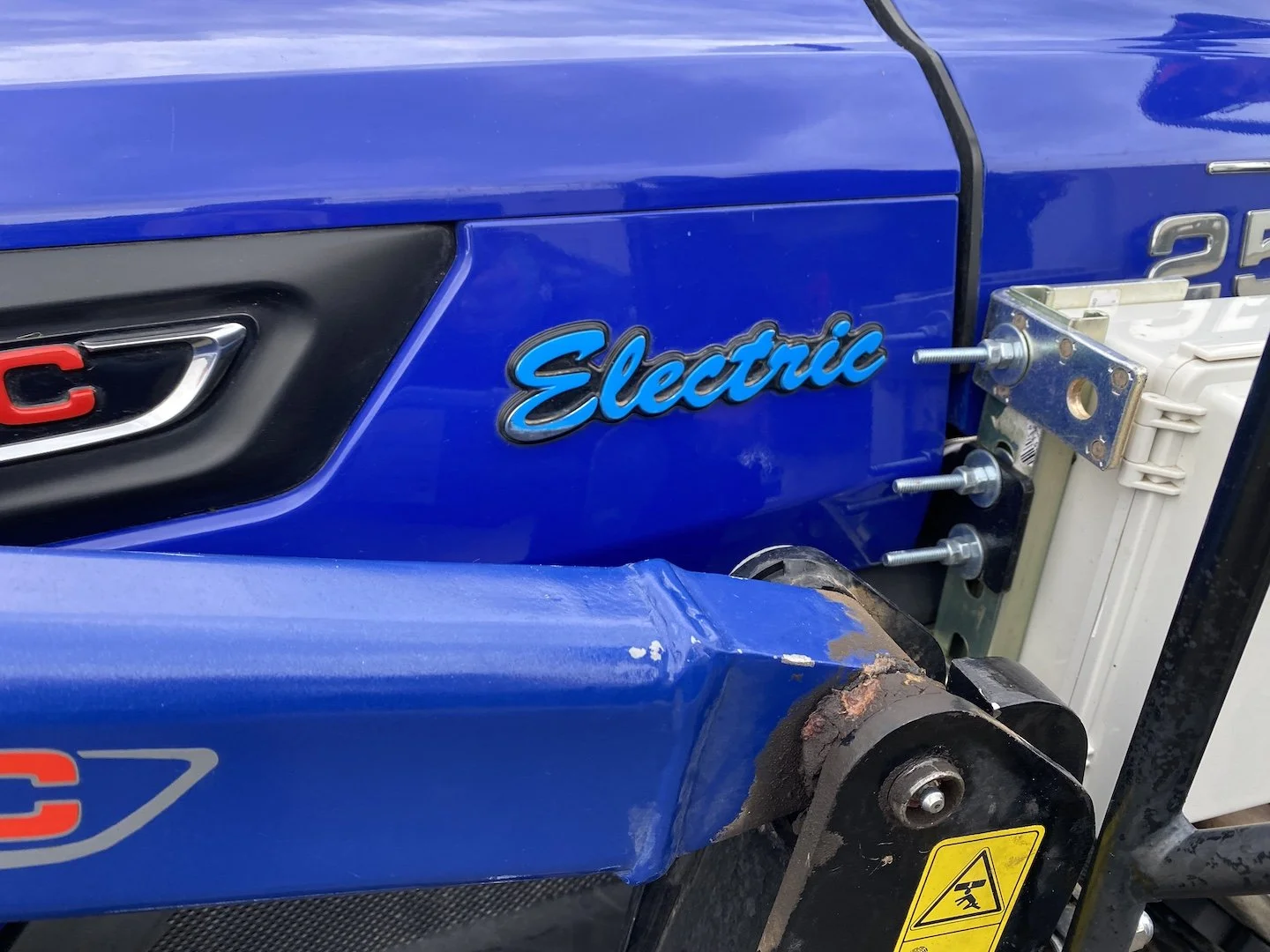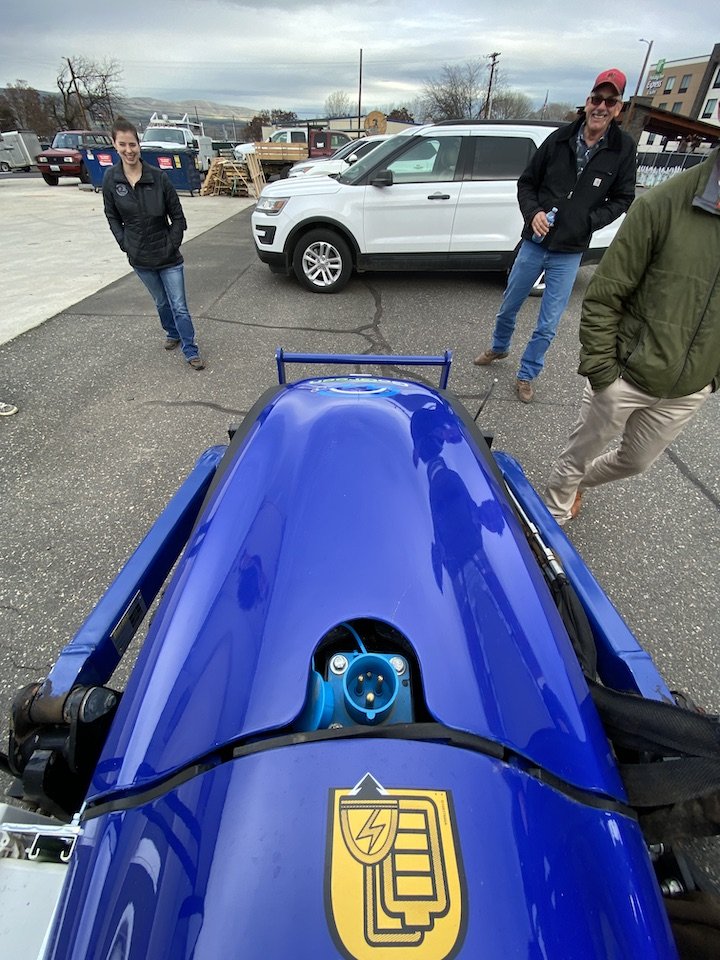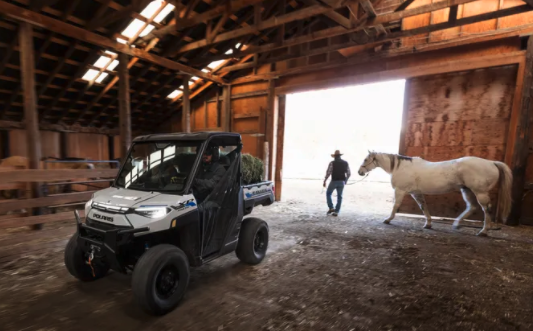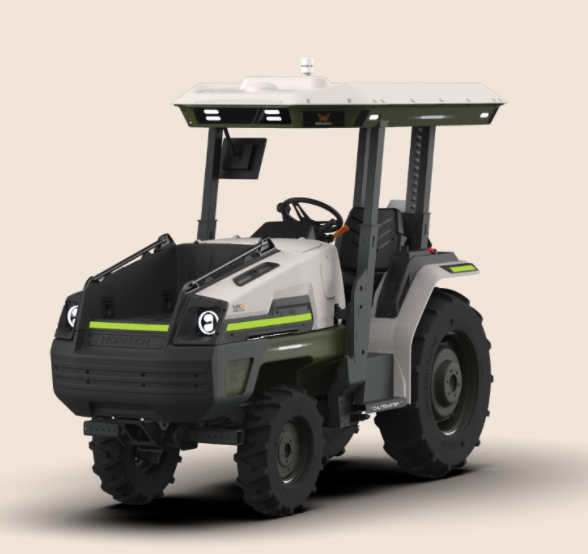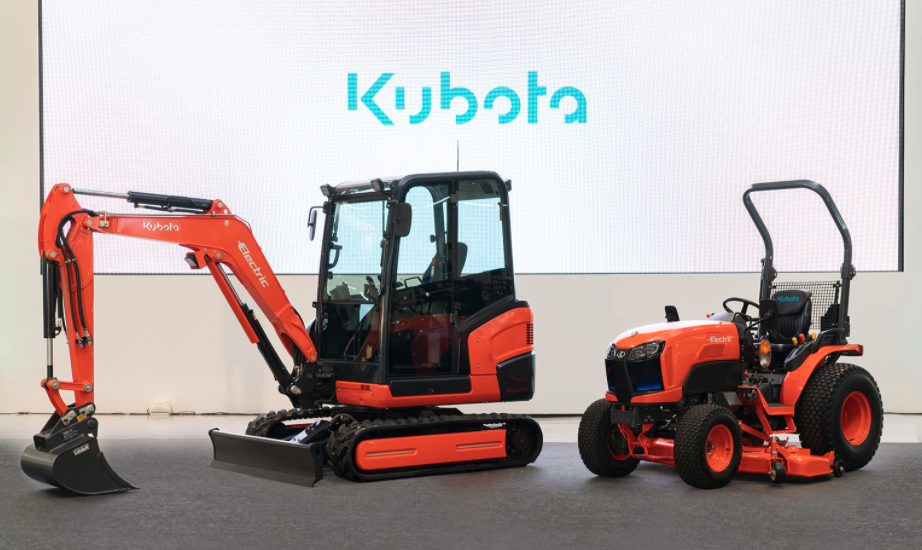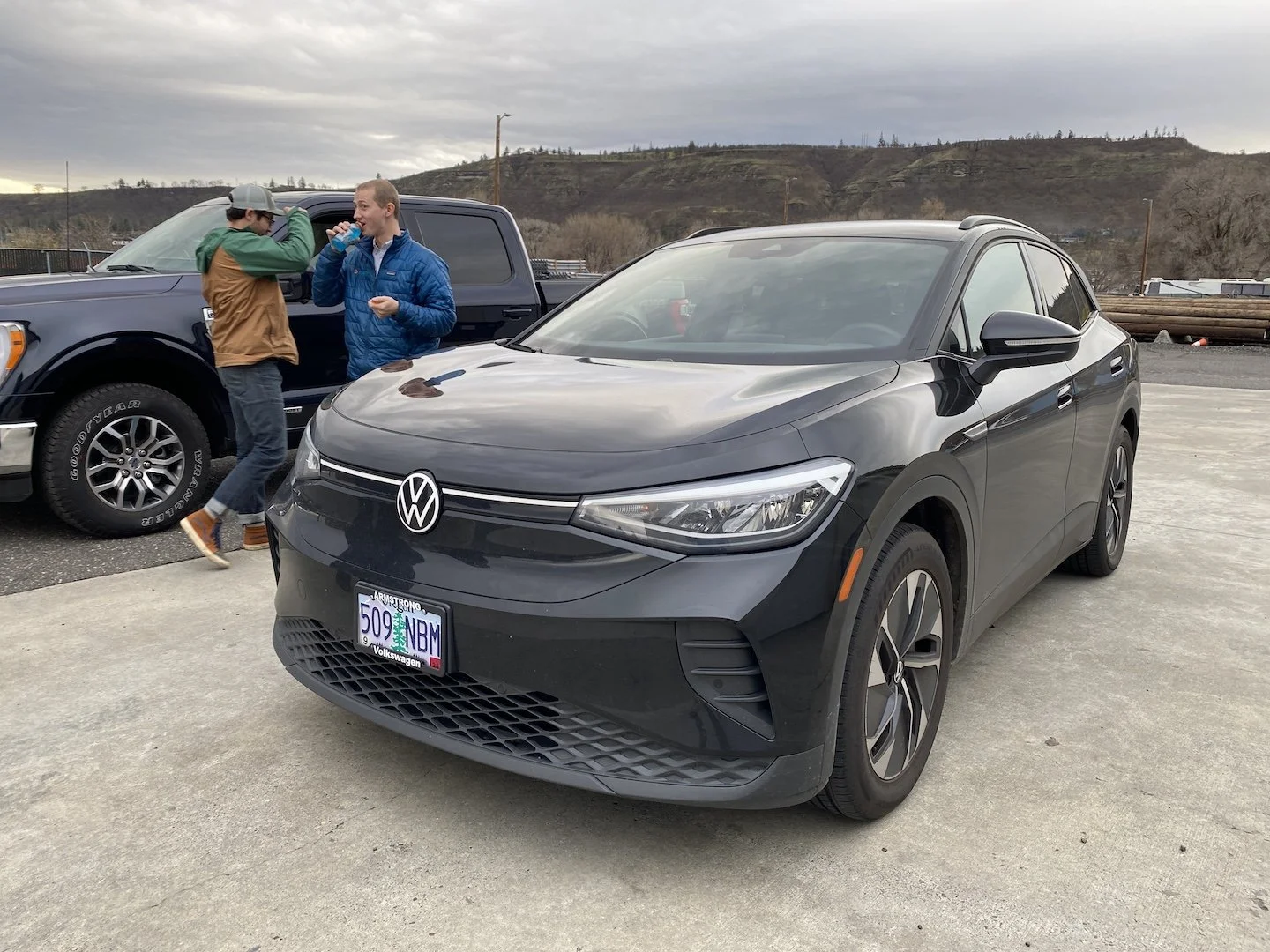Locals To Put Electric Farm Equipment To The Test
Rock picker extraordinaire Tom Peterson is shown the controls on this electric tractor by Robert Wallace a certified energy manager with Wy’East Resource Conservation and Development on Tuesday, Nov. 30.
By Tom Peterson
Electric tractors?
Shhh… right.
No, that is right.
In fact, local farmers got to try one out in The Dalles on Tuesday, Nov. 30.
While no one expects to replace combines or wheel tractors with electric options in the near future, smaller equipment is showing some pretty good signs of being able to match up with their gas or diesel counterparts.
This tractor finds a plug for electricity where the gas cap would normally be.
It gives a little glimpse of the possible future. An increasing number of companies are working on robotics innovation to develop drones, autonomous tractors, robotic harvesters, automatic watering, and seeding robots.
And electric farm vehicles are just the tip of the electron.
An utter void in electric farm equipment a decade ago is fast turning to a field of entries that are claiming equal power to diesel or gas models but with a reduced fuel cost and a smaller carbon footprint.
They cost more than gas-powered equipment, but those costs are expected to come down as production ramps up.
Packing 110 horsepower and 140 pound-feet of torque, Polaris claims the Ranger XP Kinetic will be the most powerful utility side-by-side it’s ever produced.
This tractor was priced around $29,000 fully equipped with a bucket, blade and other implements. And prices do not take into consideration savings on energy and maintenance if those claims bear out.
On Tuesday, Ron Holmes of Holmes Farm in Sherman County gave the small utility Farmtrac 25G from India a try at the Wasco Electric shop behind Franz Bread on West Sixth Street.
He also raised his hand to test an electric mini-excavator in months to come.
JCB, one of the top four manufacturers of construction equipment in the world, offers an electric mini excavator.
Because free is a pretty good price. But there was more to it than that.
“Will they compete with normal fuel?” he questioned. “I’m interested in testing it out and looking at independent studies to see if these can really do the work.”
That was just the type of interest Robert Wallace was looking to garner on Tuesday.
Wallace is a Certified Energy Manager with Wy’East Resource Conservation and Development Area Council, Inc. He’s also a resident of Dufur and is looking to bring 12 to 14 pieces of electric-powered farm equipment into the Wasco County for testing during the next year.
“We’re giving people a first look at these tractors,” Wallace said, noting Wy’East was working with three other nonprofits including Forth, Sustainable Northwest and the Bonneville Environmental Foundation to make it happen.
“We’re offering a third-party look at this equipment so we can get the real facts. Where they work and don’t work and what’s the life cycle cost of owning one,” Wallace said.
Data will be gathered as each piece of equipment is tested to see if they are viable solutions for locals needing to dig holes, cut brush, spray herbicides, mow, or plow arenas.
The equipment is linked to telemetrics, an automated communication process that records data from multiple sources.
The proof will be in the farming.
Wasco Electric’s Traci Brock said they were helping spread the word so coop members get a chance to use the equipment.
Holmes said he was skeptical of the Farmtrac 25’s ability to do shovel work.
On the other hand, he thought the six-hour charge was enough to accomplish most tasks such as mowing on his place.
The Farmtrac is rated at 6 hours of service on a full charge, but that amount of time can vary depending on how hard the tractor is made to work.
On a regular 110 volt plug, it takes five hours to charge the tractor.
Several people tried out the Farmtrac on Tuesday, including CCCNews.
The tractor sports a 72 Volt Lithium-ion battery that supplies a 15 kW - 20 horsepower electric motor.
Most of the controls were similar or identical to a normal tractor.
However, as with most electric vehicles, there was no clutch or gears to shift. It simply had forward and reverse and an accelerator pedal. Electric motors are capable of instant revolutions per minute. And there is no need to shift gears as the motor can rev very high without damage, a huge advantage over diesel and gasoline engines.
The single motor also drove the power take-off and the hydraulics for the front shovel and the three-point hitch.
It sure was quiet.
The wind up of the motor is high-pitched, but nothing that compares to the decibels of a diesel motor.
Farmtrac machines are built in India by the Escorts Group, which is the third-largest manufacturer of tractors in that country, with exports going to most parts of the globe. Oil-immersed brakes, power steering and position control hydraulic linkage are also part of the features of the FT25G.
This 70 horsepower electric tractor from Monarch in Livermore, California can run for up to 10 hours on a single charge and can be operated remotely, according to company literature. Robert Wallace said they hope to take delivery of one from the upstart company this spring and use it for demonstrations.
And Farmtrac intends to have a 70 horsepower version of the tractor in the coming year, which could work well on orchards. Some are even semi-autonomous, meaning they can be operated remotely, removing workers from chemical exposure during spraying.
Kubota has brought on a line of electric excavation and small tractor equipment
Electric Vehicle Demonstrations
On Tuesday, locals also were able to test drive a Ford F-150 hybrid pickup and a Volkswagen ID.4 all-electric vehicle. It was part of the larger demonstration to get locals test-driving electric vehicles in Wasco County.
Ford Motor Company confirmed that reservations for the all-electric F-150 Lightning pickup truck have surpassed 160,000, less than six months after its debut, according to techcrunch.com The truck is expected to hit the market in Spring of 2022. It has a base price of $39,974.
And there will be additional chances to do so in the near future as Northern Wasco County People’s Utility District, along with several other Northwest utilities, has won a Demonstration of Energy & Efficiency Developments (DEED) grant from the American Public Power Association to expand electric vehicle adoption in rural areas.
The grant will make test drives and car shares of electric vehicles possible in Wasco County.
Wallace said electric vehicles such as the Ford F-150 Lightning is a rig that farmers and ranchers could get behind with its ability to do work.
“They can relate to that,” he said.
Locals took this Volkswagen ID.4 electric vehicle for a few test drives on Tuesday. It has a range of about 250 to 300 miles depending on driving conditions. More opportunities to drive an electric vehicle are coming as Northern Wasco County PUD was recently awarded a demonstration grant.
“Getting behind the wheel of an EV is a huge catalyst for getting folks interested in buying one themselves,” said Justin Brock, customer service and key accounts manager at Northern Wasco County PUD. “There aren’t a lot of choices in the car market here yet. So, we hope to use this program to get our customers experienced with EVs and test this new technology out in a no-pressure environment.”
To read the full story on the PUD’s demonstration grant, click here.
The all-electric Rivian 1RT starts at $69,000. It goes from 0-60 mph in 3 seconds. Rivian is the first company to release a fully electric pickup truck, the R1T, and plans to launch its R1S electric SUV in December, according to Forbes. The company is also expanding into commercial vehicles: Amazon, which has a 20% stake in Rivian, is its biggest customer and has placed an order for 100,000 electric delivery vans.


